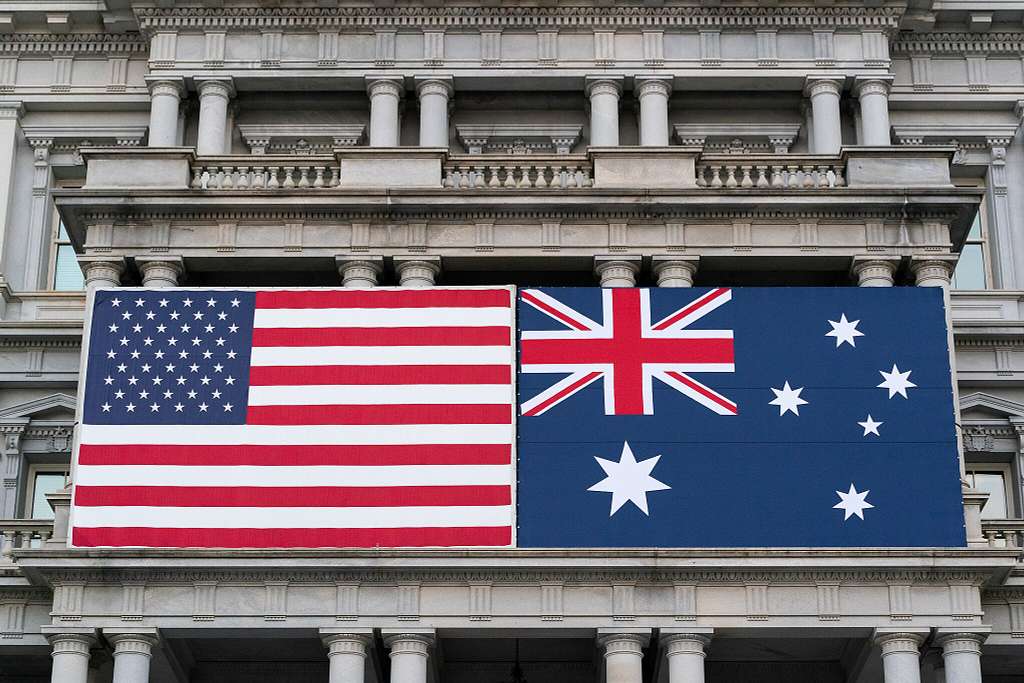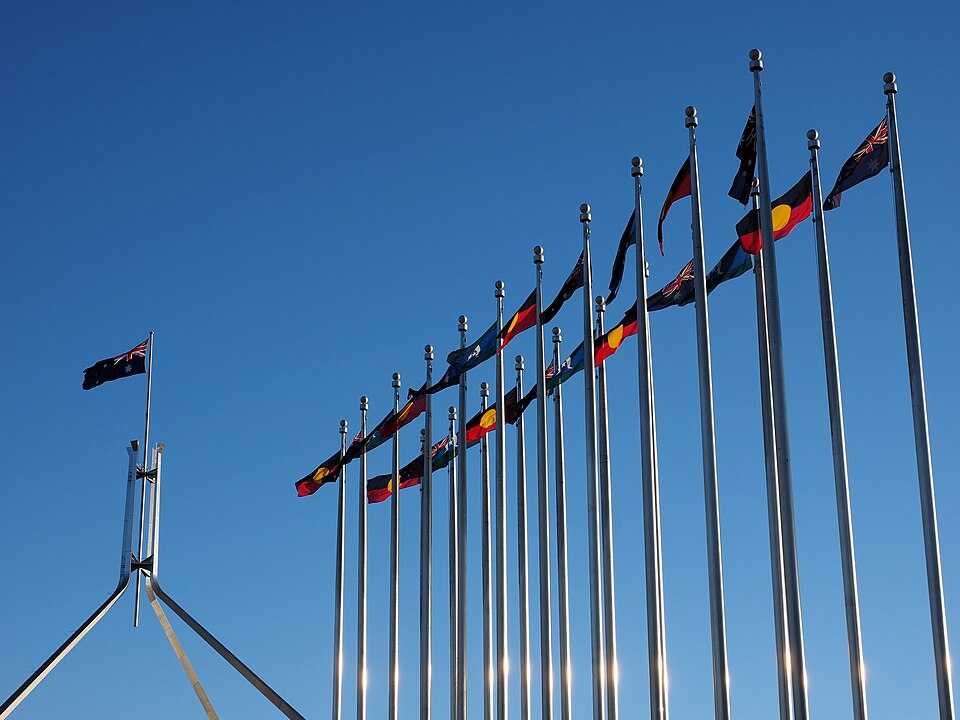As criticism of the United States grows louder in Australian circles, many are quick to declare the end of American leadership without considering what comes next. Australia’s security and prosperity remain fundamentally tied to US hegemony in the Indo-Pacific, yet calls for a post-American Asia ignore both the realities of power politics and the absence of any credible alternative. The question is not whether American leadership is perfect, but whether we are prepared for the world that would emerge in its absence.
It has become increasingly fashionable to criticise the United States of America in the classrooms, political clubs, and workplaces of Australia. Analysts such as Hugh White have popularised this notion, arguing that Australia must prepare for a post-American Asia. This line of thought has found traction among younger academics and policy thinkers, who often view US leadership as an anachronism of the twentieth century rather than a guarantor of peace in the twenty-first.
Pointing to the disruption of the second Trump Presidency, the withdrawal from Afghanistan, and the supposedly inexorable rise of China, many believe that the decline of the US is a fait accompli. Even more, many seem to believe that such a decline will positively impact the affairs of the world. Yet the same critics who proclaim the end of American leadership rarely offer a viable successor to the Pax Americana that has underpinned global order since 1945. It is my view that this sentiment is not only misguided but is, in fact, manifestly dangerous to the future peace and prosperity of Australia.
Australians want peace, but we are not prepared for war. This single observation casts doubt on all arguments against our strong economic, cultural, and military alliance with the United States of America. In fact, it casts into doubt any arguments made against US hegemony in the Pacific. The 2023 Defence Strategic Review made this clear, warning that Australia “no longer enjoys a ten-year warning time” and that US extended deterrence remains essential to our national security. Our reliance on US capabilities, from intelligence sharing under the Five Eyes arrangement to the technology transfers promised under AUKUS, is not merely a matter of convenience, but of survival. Interestingly, many who reside in the anti-US camp maintain an anti-militarist view that weeps at the sight of materiel expenditure. Yet, surely it is evident that to grow a totally sufficient deterrent to the other powers of the Pacific, including research and development of hypersonic munitions, next generation surface and undersea ships, next generation fighter jets, and drones, is more expensive than participating in the marketplace of like-minded liberal-democratic states. Unless these voices suggest that we should not maintain a credible deterrent at all, a radical view that calls to mind the rightfully unattractive terms of appeasement and vulnerability.
It is popularly claimed that US adventurism in the Middle East discredits its leadership. Indeed, the withdrawal from Afghanistan and the prolonged occupation of Iraq did not positively influence its global reputation. Yet such claims ignore that the US, despite its flaws, has provided the global public good of stability: keeping sea lanes open, restraining authoritarian aggression, and anchoring institutions such as the UN, World Bank and the IMF. Although it is fair to say that the UN has struggled to maintain global order during Trump’s presidency, the same could have been said under President Biden. Despite their sharp ideological contrasts, both leaders have pursued the same core foreign policy objectives: a stable Europe, Middle East, and Indo-Pacific. In practical terms, the differences between their foreign policies are less pronounced than rhetoric suggests. Trump may be more verbose on the world stage, but under both administrations, weapons have continued to flow to Ukraine, and the US Seventh Fleet remains firmly positioned in the vicinity of Taiwan. Without such leadership, the Indo-Pacific risks sliding into the kind of competitive militarisation that characterised Europe before 1914. Moreover, it should never be forgotten that between 1945-1949, when the US had a nuclear monopoly and thus was the most powerful civilisation in history, it did not abuse this awesome might against a defenseless world, and the only significant military engagement in this time occurred with the defense of the South Koreans.
It is the nature of power and vacuums that any criticism of US dominance can only be decisive if a credible and superior alternative can be found. China, for all its economic dynamism, offers little in the way of an alternative political or moral order. Its governance model is authoritarian, its alliances transactional, and its record on international law dubious. To wish for the end of American hegemony, then, is not to wish for peace, but to risk a vacuum that would be filled by coercion rather than consent. It is not sufficient to criticise the US. One must also prove that it is in Australia’s interest to have an alternative foreign power dominate the region instead. To those who would like to wish that the withdrawal of the US from the Indo-Pacific would leave a harmonious web of altruistic states, without a new power taking its place, I can only say good luck.
Earlier, I echoed Vegetius, who wrote that “if you want peace, prepare for war.” This phrase was coined in the dying days of the Roman Empire, as a once untouchable hegemonic power and civilisation began to collapse. Many pundits today draw comparisons with that fate and the current state of the US. But this comparison is both historically and strategically shallow. The lesson is not that power corrupts, but that weakness invites predation. An Australia stranded without US support will invite predation. If we believe in the fundamental goodness of our society and of liberal democracies across the world, then we should continue to do our part in protecting US hegemony, as it is in this state that the most effective and efficient increase in human welfare in history has occurred.
One must not forget that the law is built on a foundation of coercive power. This is doubly true for the law of an international nature. We cannot wish away the unfortunately violent reality of human affairs. We can only help decide who wields the power. Australia has already seen the nature of coercion from the Chinese Communist Party, surely a sometimes-erratic US is morally and practically superior for our way of life than a calculating apparatus of centralised state control that sees dominance over the West as retribution for historic injustice.
To those who support the rule of law and who reject the imposition of a centralised moral authority, it follows that they must also support the continued predominance of the United States. Australia alone lacks the material and strategic power to defend our liberal-democratic way of life, and that of our regional partners. The United States, however, retains both the capacity and the will to do so. Our future security depends on the endurance of that leadership.
Kai Bowie is a final year Bachelor of Commerce student at the University of Melbourne. He serves as the President of the Melbourne University Liberal Club, which celebrated its centenary in October. Next year he will complete his officer commissioning course in the Australian Army Reserves and begin his career in strategy consulting.
This article is published under a Creative Commons License and may be republished with attribution.




